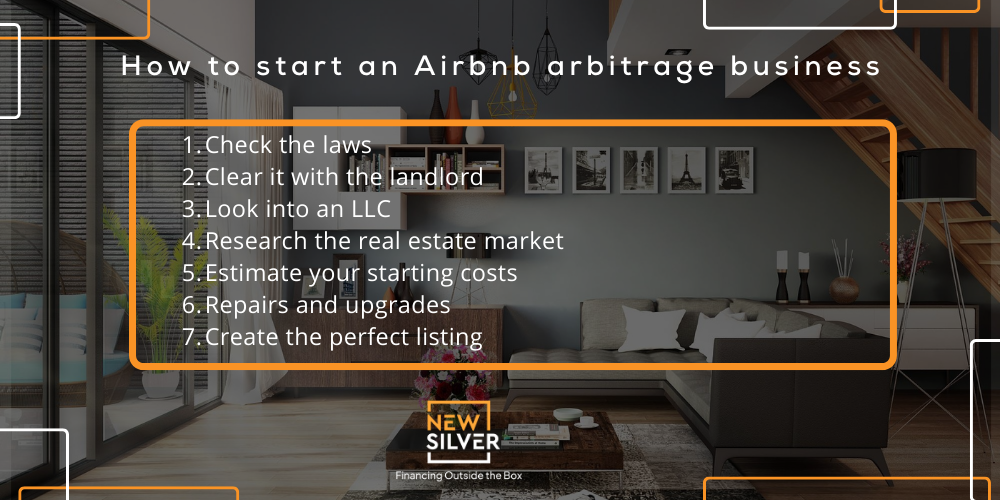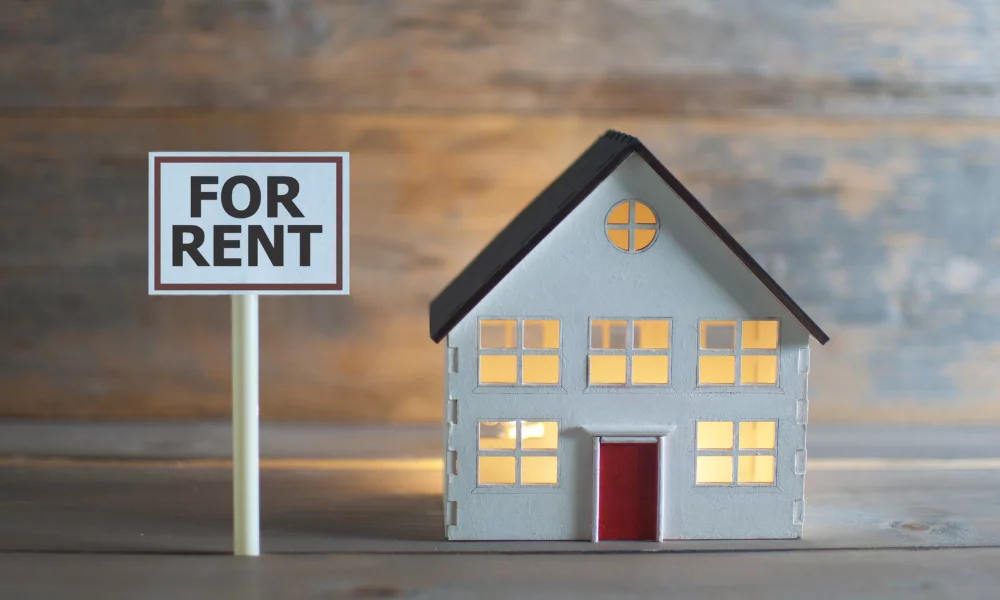A brief outline
Purchasing a rental property to let out to tenants is not the only way to enter the rental real estate market. There is another solution which eliminates the need for owning property altogether. Sound too good to be true? We’ll outline the Aribnb arbitrage technique in our beginner’s guide below.
Jump To
Airbnb has taken off in a big way over the last few years. By now, most people have used Airbnb or at least heard of it. The short-term rental platform is easy to use and offers renters a quick way to find the accommodation they’re looking for. As the platform continues to expand, it has also piqued the interest of real estate investors.
An interesting fact about Airbnb is that you don’t need to own a property before putting it on the platform to rent out. Those who are looking to invest in rental property can use Airbnb as a way to generate income can do so without purchasing a property first. This can be done using a process called Airbnb arbitrage. Here’s a beginner’s guide to this interesting technique.
What is Airbnb Arbitrage?

Also known as Airbnb Rental Arbitrage, this is a business model whereby people can sub-let properties that they are renting on short-term rental platforms such as Airbnb. Which means that people don’t need to own the property that they’re renting out.
Owning a home is becoming an impossible feat for many, as home prices have sky-rocketed over the last few years and general income isn’t matching this increase. So, the Airbnb arbitrage technique is a welcome reprieve for those looking to get into real estate but unable to purchase a property, or deal with the extra costs associated with home ownership.
Due to the simplicity of the Airbnb arbitrage method, and the fact that many people can use it without needing a large amount of capital, this technique has become popular, particularly among the Airbnb community. Here’s how it works…
A quick example
If you were renting a 2-bedroom apartment for $2,000 a month and you sub-let it on Airbnb as per the Airbnb arbitrage method. You could generate $150 per night in rent, which would mean that you could pay off your rent after 2 weeks of letting out the apartment. The rest of the month would then be profit.
If you rented the apartment out for 28 days of the month, you’d generate a total income of $4,200 for the month. If you used $2,000 to pay your rent, you’d be left with a $2,200 profit. Some of this could be used to maintain the property, and the rest could be saved or put towards something else.
How do you start an Airbnb arbitrage business?

Any real estate investment will require some upfront work, and some costs will be involved too. Here are the first steps you’ll need to take, to get an Airbnb rental arbitrage business off the ground.
Step 1: Check the laws
Your first and most important step to running a successful Airbnb arbitrage business is to check the laws and regulations in the area where you’ll be operating. Some areas don’t allow for short-term or holiday rentals, in which case this would be illegal. Clearing up the legalities around the short-term rental method is vital to do at the outset.
Step 2: Clear it with your landlord
The next step is to come to an agreement with your landlord. You’ll need to outline what you plan to do, get their approval and amend or re-do your lease to reflect the new arrangement.
Step 3: Look into an LLC
If you plan on subletting more than one property, you may want to open a business entity. One of the best entities for this purpose is a Limited Liability Company (LLC). This will protect your personal assets and come with tax deductions.
Step 4: Research the real estate market
One of the key aspects to making an Airbnb arbitrage business successful is to do adequate research on the housing market in the area where you’ll be operating. Each real estate market differs, so it’s important to get to grips with the market in your area and figure out how to price your short-term rental and where these rentals are needed the most.
Step 5: Estimate your starting costs
While you may not need to purchase a house to get into real estate investing this way, there will still be some upfront costs to consider. These include, but are not limited to:
- Cleaning services
- Décor, furnishings and kitchenware
- Application fee for any permits or licenses you may need
- Legal fees
- WiFi
- Utilities each month if the landlord isn’t paying these
- Insurance
- Repairs and maintenance to the property that fall on the tenant to do
Step 5: Repairs and upgrades
Lastly, you’ll need to make sure that you’ve done all the necessary repairs and upgrades or décor changes to the house, to make it short-term guest friendly. Whether this means painting the place, or changing the décor to a more neutral tone, this is a step that must be done with the specific type of guests in mind.
Step 6: Create the perfect listing
Now you’re ready to begin renting out the house, so you’ll want to find a short-term rental platform like Airbnb and list it on there at the right price. Airbnb listings are important as these can make or break your strategy. Make sure to use good photographs, list all the amenities and nearby attractions, as well as price the vacation rental right.
How to find Airbnb arbitrage properties

Method 1: Rental listing sites
One of the easiest ways to find a property to use for rental arbitrage is on a rental property listings website, such as Zillow. You’ll be able to find a property on these websites that has the features you require, thanks to the detailed property information available and the search filters. Once you’ve found a rental property, you can talk to the landlords about your plans and decide whether it’s a viable option before you sign the lease.
Method 2: Online search
You can search via Google or on social media for landlords who are specifically open to the idea of their tenant subletting the place as a short-term rental. This can take a little longer, however you’re then guaranteed to be talking to a landlord who is already on board with your plans from the outset.
Method 3: Network with real estate investors
Join your local real estate investors groups and meetings. Networking with real estate investors in your area allows you to connect with people who can help you find leads on a property to sublet.
Method 4: Ask real estate agents
Local real estate agents are typically a useful resource for real estate investors of all types. The key is to be honest about your plan from the start, so that they can recommend the right properties and landlords.
Pros and cons of Airbnb Rental Arbitrage

Pros
- Great technique for new real estate investors
Those who are looking to begin their career in real estate but cannot afford to purchase a property can look at Airbnb Rental Arbitrage as a solution. It’s easy to start, and doesn’t cost a lot upfront, which makes it an attractive option for those who are new to real estate.
- Low upfront costs
No property purchase is required which means that the upfront costs associated with this strategy are low. The typical upfront costs will include furniture items, décor, repairs, utilities and so on.
- Easily scalable
Successful real estate investors need to be able to scale their business at some point. Airbnb rental arbitrage allows people to scale easily, by adding multiple rental properties into their portfolio and renting these out on Airbnb or another short-term rental platform.
- Lower risk
The risk factor with this technique is a lot lower as you don’t own the property yourself. When something big needs to be replaced or repaired, this will be the homeowners’ responsibility to fix. If the property doesn’t generate enough income, you can simply end the lease and walk away from the arrangement.
- Less admin
The Airbnb arbitrage technique requires less admin than a regular rental property because the property isn’t owned. This means that the owner will need to take care of a lot of the paperwork and all you’d need to focus on is paying the rent each month.

Cons
- Mandatory rent payments
You will be liable for the monthly rent payments, whether there are short-term guests in the property or not. This can be difficult in months where rental income is sparce, and it can be hard to plan for this as short-term renting is not very predictable. You’ll need to plan carefully and have funds on hand to pay the rent in months where there is less income generated.
- Property damage is your responsibility
If any of the renters cause damage to the property, you may be liable for the repair costs because the lease is ultimately in your name. In some cases, the property’s insurance or the platform you are using may be able to assist with these costs, however this can still be expensive.
- Laws and regulations to abide by
You’ll need to familiarize yourself with the laws and regulations around short-term renting in your area. There can be local laws, HOA rules, neighbors to deal with and more. There are various parties to consider with this type of arrangement, so it can get tricky when you’re trying to keep everyone happy.
- Leasehold agreements may be required
The time and effort that go into creating leasehold agreements can be a drawback for some people. Legal services are typically required for these agreements, and they are necessary for Airbnb rental arbitrage to protect the landlord, tenant and short-term guests.
- Changing market conditions
As a real estate investor for short-term rentals, you’re at the mercy of the market. Conditions can change quickly, and with it the demand for short-term rentals can too. In which case, you may be affected and have to re-look your strategy.
Is the rental arbitrage model feasible, or is it just a fantasy?
The rental arbitrage investment strategy may sound too good to be true, but that’s not the case. The technique can work well in certain markets, however the right research should be done, along with thorough due diligence, to be successful. Local real estate markets differ greatly, so this strategy may not be successful in certain housing markets. Research is key to establishing whether a market has the right demand for this.

FAQs
The legality of this method depends on the area. Each area has different regulations with regards to short-term rentals so it’s worthwhile checking what the local laws are before you take the next step. If your area allows you to participate in Airbnb rental arbitrage, then your next step is to clear it with your current landlord. This is an important step that should not be missed, or you could face eviction.
An Airbnb arbitrage property is one that is being rented by someone, who then sublets it on the Airbnb platform (or another vacation rental platform) as a short-term rental. The goal behind this is to make money from the short-term guests, to cover the rent and earn a profit.
Final thoughts
For those who are unable to purchase an investment property to fix and flip or rent out for the longer term, an Airbnb rental arbitrage business could be a good solution. However, the success of this strategy largely depends on the local real estate market. If the demand for short-term rental properties is high, then this bodes well for rental arbitrage, and if it doesn’t then you may struggle to make a profit from this.
It can be a great way to get into the real estate market, for those who wouldn’t have been able to afford it otherwise, and for investors who don’t have the time to self-manage a rental property, property managers can assist with the subletting.



